Generation E
The voice of Mediterranean migration
Jacopo Ottaviani – @JacopoOttaviani
Madrid, 24th April 2016
Giolika Poulopoulou, 25 years, from Thessaloniki in Greece to Berlin, theatre pedagogy
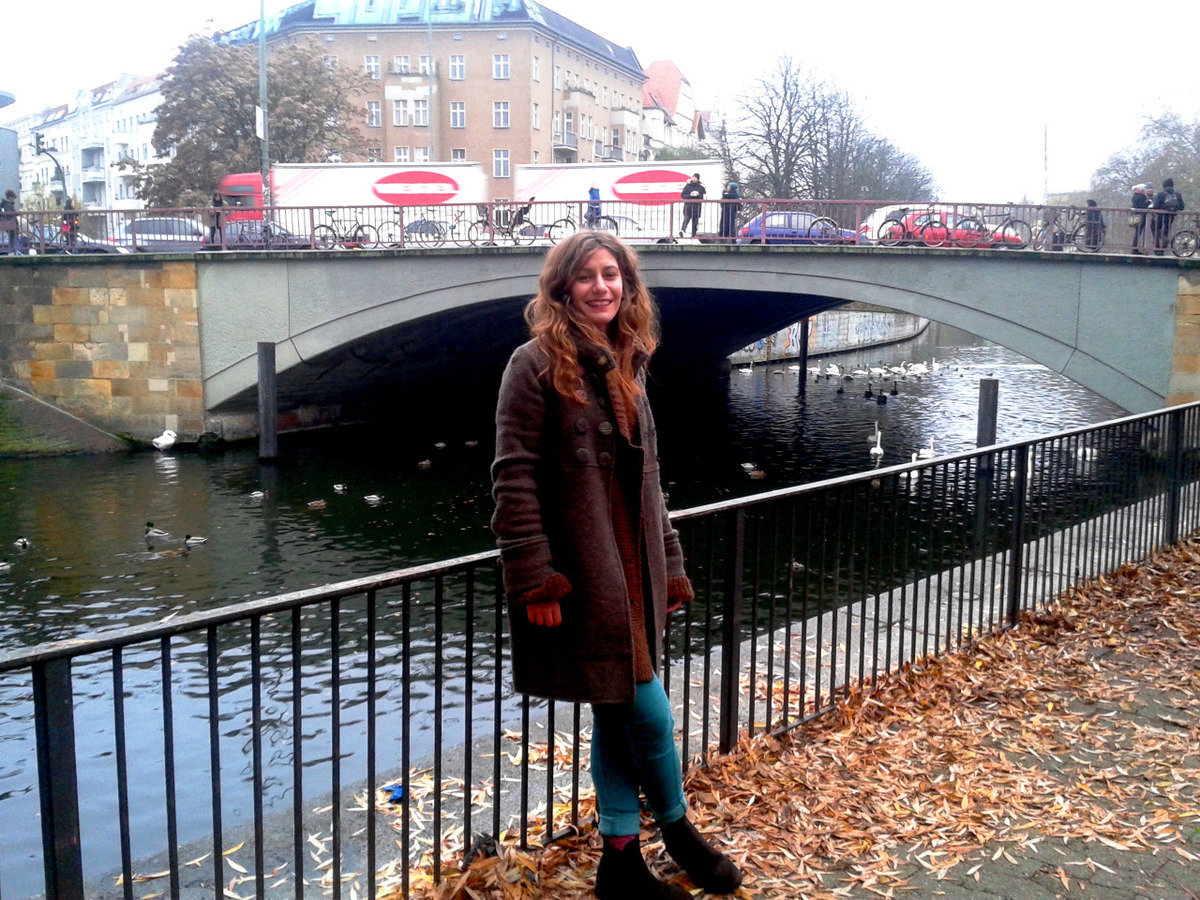
Why E?
- Europe
- Expatriate
- Emigration
- Exodus
- Erasmus
- Exile
- Escape
- Easyjet
- ...
Objectives
Dive into the generation of young south-european migrants
- Approach the topic from a pan-european angle
- Publish stories in multiple languages, raise awareness and shape public debate in Europe
- Fight clichés across Europe
- Show limits & lacks of existing data
- Gather a critical mass of users for future developments of the project
Brain drain
vs.
Mobility
Generation E, in numbers
- 2,500 stories of migrants collected
-
4 data journalists
- Katerina Stavroula (@i_catrin, Greece)
- Daniele Grasso (@danielegrasso, Spain)
- Sara Moreira (@saritamoreira, Portugal)
- Jacopo Ottaviani (@jacopoOttaviani, project manager, Italy)
- 6 languages: Spanish, Italian, Greek, Portuguese, German, English
- 10+ media outlets
- Several countries involved (origins/destination)

Three main tracks
- Crowdsourcing stories from young migrants
- Interviews of policy-makers, researchers and associations
- Data investigation (for each country)


1st launch: 8.9.2014
INTRODUCTION AND LAUNCH
- Multilingual crowdsourcing campaign
- Handmade front-end design (to be embedded in newspapers): www.generatione.eu
- Existing data on migration flows
- Results: 1,200 stories in one Excel file
- Preparing the ground for 2nd launch

2nd launch: 24.11.2014
RESULTS
- Major findings based on collected data
- Interviews to researchers and stakeholders
- Fragments of stories
- Re-launch of the form
- 8 interviews in German of migrants living in Germany

Major finding #1 - Driving factors
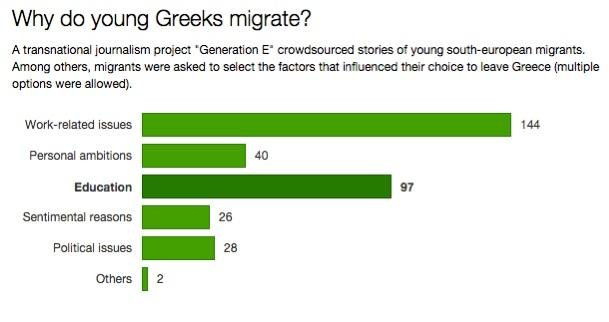
Major finding #2 - Registration

Major finding #3 - Inclination to return
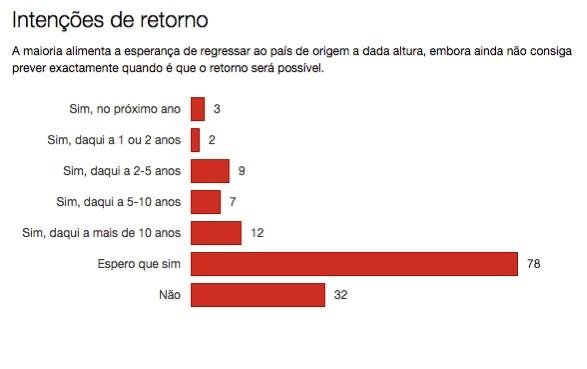
2,400+ stories received
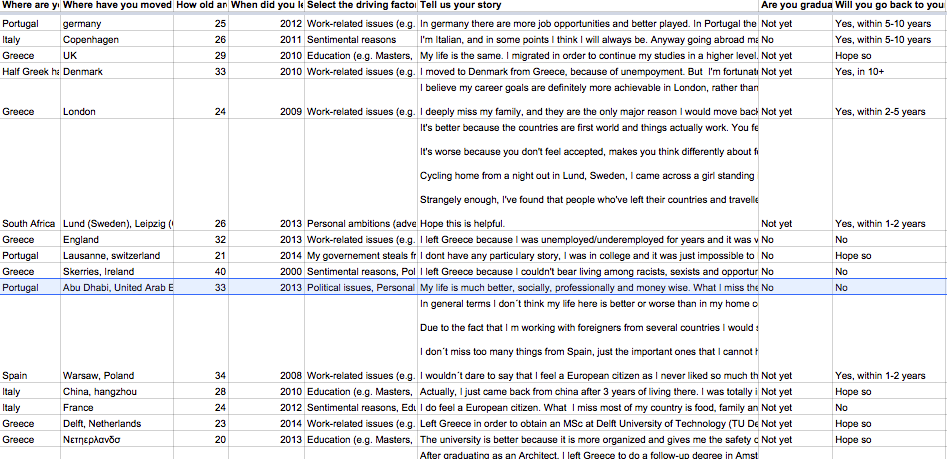
Projects like this do not finish once published.
They begin once published.
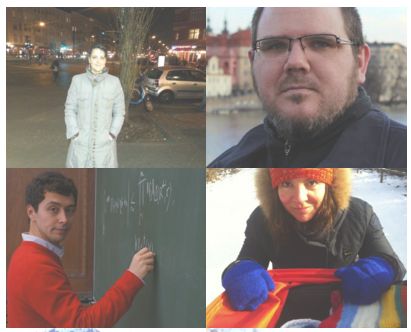
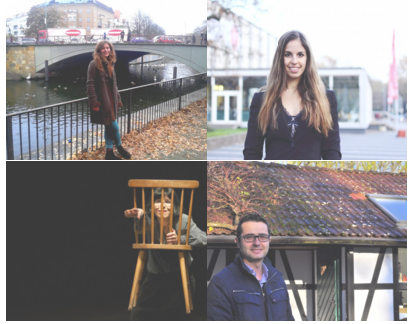
Data points are actual stories
We did not only publish a series of stories, but have created a database.
Such databases are very interesting not only for media, but also for universities, research centres, think tanks and other players.
We also set up a community.
Our participants and readers joined a group and started interacting.

List of Generation E Publications
http://www.generatione.eu
Limits & Potentials
- The sample is not representative of the population
- Methodology used to build the dataset is not rigorously scientific
- Still useful to tell stories and find interesting insights
- Gold mine of narratives and stories and an evidence of official data's lacks


Tools used
- OpenRefine to clean data (e.g., eliminate duplicates)
- Datawrapper to make charts
- Trello to coordinate team, calendar, tasks and share files
- Google Forms to collect stories (+ custom CSS)
- Google Drive to share files
- Doodle to schedule calls (1 call per month, for 6 months)
- The project is scalable (it can be exploded in new countries)
- The format is replicable
- It can lay the foundation for deeper investigations, reportages or even verticals
- Overcome linguistic barriers (translation is distributed + team work in English)
- Research is decentralised
- Coordination is centralised (1 project manager helps to set the pace and use resources efficiently)
Some methodological takeaways
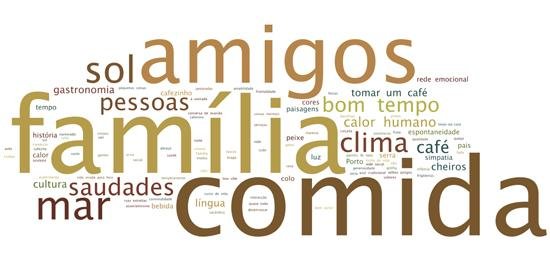
What Portuguese young migrants miss the most?
courtesy of Sara Moreira
Thank you!
Questions?
@JacopoOttaviani

Generation E
By jottaviani
Generation E
- 955



